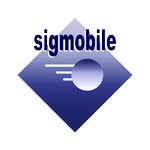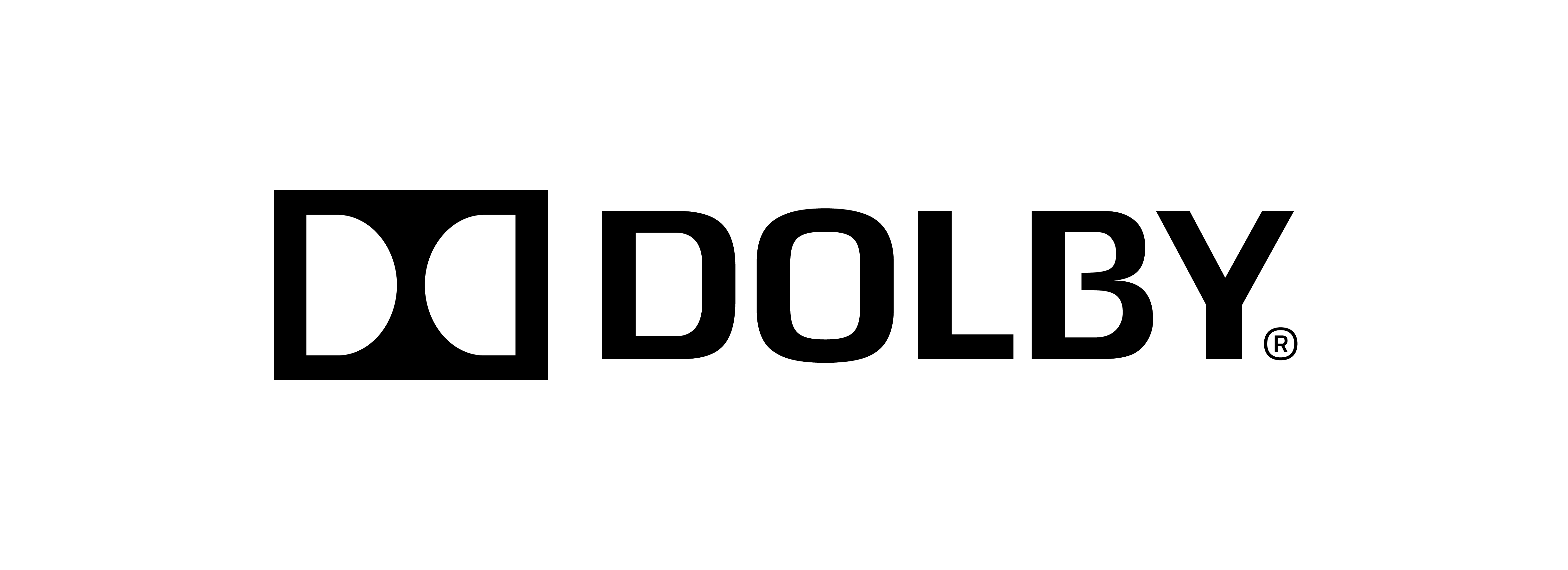Open Dataset & Software Track
Important Information
- For dates, see important dates
- Online submission: https://mmsys2019ods.hotcrp.com/
- Submission formats:
- Paper: 4-6 pages using ACM style format (single blind)
- Dataset: URL to repository
- Software: Virtual machine image and/or URL to repository
Track Chairs
- Niall Murray (Athlone Institute of Technology, Ireland)
- Emir Halepovic (AT&T Labs – Research, USA)
Further Information
- Webpage: http://www.mmsys2019.org/dates-and-guidelines/open-dataset-software-track/
- Email: ods@mmsys2019.org
Call for Submissions:
Sharing data and code to allow others to replicate research results is the ideal way to advance the field and improve multimedia systems. To reach this goal, the “Open Dataset & Software Track” at MMSys provides an opportunity for researchers and practitioners to make their work available and citable, as well as to increase the public awareness of their considerable efforts.
Those who have created a new dataset or open source software package that is relevant to the multimedia community should consider submitting it to this track.
This includes, but is not limited to, software and datasets relevant to both traditional and emerging areas, traces reflecting network, user, or application behavior and performance, both real or synthetic, but representative datasets, as well as software from all aspects of production, coding, transmission, use, or analysis of multimedia.
Together with the dataset or source code, authors are asked to provide a short paper describing its motivation, design, and usage, as well as discussing the way it can be useful to the community.
- The accepted papers will be included in the conference proceedings, and will be given the appropriate ACM Reproducibility Badge.
- The accepted contributions will be hosted in the MMSys GitHub repository (source code) or in the ACM Digital Library or Zenodo (datasets).
- The authors of accepted contributions will be invited to demonstrate their open source software package or a demo application using their dataset as part of the regular conference program. Papers should be between four and six pages long (in PDF format) including references, prepared in the ACM style and written in English. Authors do not need to anonymize their submission due to the inherent difficulty of doing so for source code and datasets.
Submission of a dataset: the authors should make it available by providing a public URL for download.
Submission of an open software package: the source code, dependencies on external libraries, and installation instructions must be available on a public web page or in a publicly accessible software repository. Additionally, the authors are requested to prepare a virtual machine image on which the software is pre-installed and ready for use or host the application online, unless the source code is self-contained and easy to compile without requiring administrator privileges or the installation of external dependencies. Please see here for instructions on how to prepare a virtual machine image. The URL to the dataset or software should be mentioned in the submitted paper.
It is the author responsibility to ensure that all datasets and source code are licensed in such a manner that it can be legally and freely used, at the minimum in academic and research settings.
Authors are encouraged to prepare all documentation required to support a seamless review process with the proposed dataset or source code, including examples of how it can be used by the public.
All submissions will be peer-reviewed by at least two members of the technical program committee of MMSys 2018. Criteria of selection include:
- Datasets: The collection methodology and the value of the dataset as a resource for the multimedia research community, including novelty and added value compared to existing datasets.
- Software: The broad applicability and potential impact, novelty, technical depth, and demo suitability of the proposed software, as well as added value compared to existing solutions.
Accepted Papers
| Title | Author [s] |
|---|---|
| ADD-FAR: Attacked Driving Dataset for Forensics Analysis and Research | Kanchan Bahirat, Nidhi Vaishnav, Sandeep Sukumaran, and Balakrishnan Prabhakaran (The University of Texas at Dallas) |
| DASHbed: a testbed Framework for Large Scale Empirical Evaluation of Real-Time DASH in Wireless Scenarios | Darijo Raca, Yusuf Sani, Cormac J. Sreenan, and Jason J. Quinlan (University College Cork) |
| A Taxonomy and Dataset for 360° Videos | Afshin Taghavi Nasrabadi, Aliehsan Samiei, and Anahita Mahzari (The University of Texas at Dallas); Mylene C.Q. Farias and Marcelo M. Carvalho (University of Brasilia (UnB)); Ryan P. McMahan and Ravi Prakash (The University of Texas at Dallas) |
| FTV360: a Multiview 360-degree Video Dataset with Calibration Parameters | Thomas Maugey (Inria); Laurent Guillo (CNRS); Cédric Le Cam (Inria) |
| VISEM: A Multimodal Video Dataset of Human Spermatozoa | Trine B. Haugen (Oslo Metropolitan University); Steven A. Hicks (SimulaMet); Jorunn M. Andersen, Oliwia Witczak, and Hugo L. Hammer (Oslo Metropolitan University); Rune J. Borgli (Simula); PÃ¥l Halvorsen (SimulaMet); Michael A. Riegler (SimulaMet & University of Oslo) |
| A Saliency Dataset for 360-Degree Videos | Anh Nguyen and Zhisheng Yan (Georgia State University) |
| From Click to Playback: A Dataset to Study the Response Time of Mobile YouTube | Frank Loh, Florian Wamser, Christian Moldovan, Bernd Zeidler, and Tobias Hoßfeld (University of Würzburg); Dimitrios Tsilimantos (Huawei Technologies France); Stefan Valentin (Darmstadt University of Applied Sciences) |
| The Unobtrusive Group Interaction (UGI) Corpus | Indrani Bhattacharya (Rensselaer Polytechnic Institute); Michael Foley (Northeastern University); Christine Ku, Ni Zhang, Tongtao Zhang, Cameron Mine, Manling Li, and Heng Ji (Rensselaer Polytechnic Institute); Christoph Riedl and Brooke F. Welles (Northeastern University); Richard J. Radke (Rensselaer Polytechnic Institute) |
| A Dataset of Eye Movements for the Children with Autism Spectrum Disorder | Huiyu Duan, Guangtao Zhai, Xiongkuo Min, Zhaohui Che, Yi Fang, and Xiaokang Yang (Shanghai Jiao Tong University); Jesus Gutierrez and Patrick Le Callet (University of Nantes) |
TPC Members
| Name | Affiliation |
|---|---|
| Ahmed H. Zahran | University College Cork |
| Alexander Raake | Audiovisual Technology Group; Technische Universität Ilmenau |
| Anatoliy Zabrovskiy | Alpen-Adria-Universität Klagenfurt |
| Attilio Fiandrotti | Télécom Paristech |
| Bart Thomee | |
| Bernard Wong | University of Waterloo |
| Bogdan Ionescu | University Politehnica of Bucharest |
| Britta Meixner | Tiledmedia |
| Carsten Griwodz | Simula |
| Cathal Gurrin | Dublin City University |
| Christian Timmerer | Alpen-Adria-Universität Klagenfurt / Bitmovin Inc. |
| Enrique Garcia-Ceja | University of Oslo |
| Federica Battisti | Roma Tre University |
| Frank Hopfgartner | University of Sheffield |
| Gwendal SIMON | Adobe | IMT Atlantique |
| Håkon Kvale Stensland | Simula Research Laboratory |
| Jaeyoung Choi | ICSI |
| Jason J. Quinlan | University College Cork |
| Jesús Gutiérrez | Université de Nantes |
| Kashif Ahmed | Adapt Centre, Trinity College Dublin, Ireland |
| Luca Rossetto | University of Basel |
| Mathias Lux | Klagenfurt Univ |
| Michael Riegler | Simula |
| Minh Son | Universiti Teknologi Brunei |
| Paal Halvorsen | Simula Research Laboratory & University of Oslo |
| Philippe Gournay | Universite de Sherbrooke |
| Ryan Shea | Simon Fraser University |
| Tim Wauters | Ghent University |
| Wei-Ta Chu | National Chung Cheng University |
| Xavier Corbillon | Tiledmedia |
| Yashar Deldjoo | Politecnico di Bari |
| Yuhang Ye | Athlone Institute of Technology |















